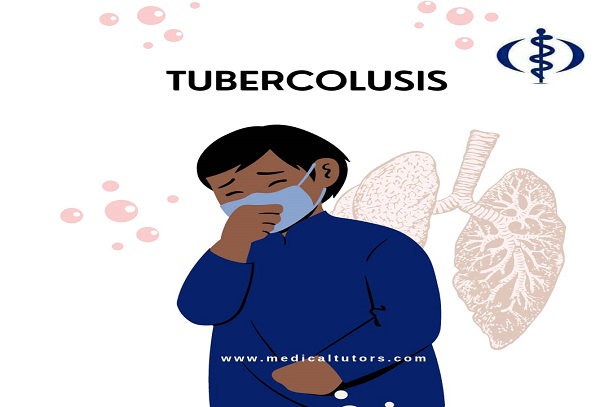 Wash your hands regularly and wear a face mask.
Learn more
Wash your hands regularly and wear a face mask.
Learn more

Introduction
Tuberculosis, also called TB is a contagious bacterial infection that is spread through the inhalation of tiny droplets from the coughs or sneezes of an infected person. It mainly affects the lungs but can affect any part of the body – liver, abdomen, spine, glands, nervous system, and the brain.
It is caused by a bacteria called Mycobacterium tuberculosis. A potentially serious condition, but can be cured if it’s treated with the right medications.
About 10 million people are infected with TB all over the world, and about 1.5 million people (including 214, 000 people infected with HIV) died from the disease in 2020. TB is the 13th leading cause of death and the second leading infectious killer after COVID-19 (above HIV/AIDS).
Types of Tuberculosis
Not everybody that has TB develop its symptoms or gets sick. The body can harbour the bacteria that cause tuberculosis, and the immune system prevents one from getting sick. Thus, there are two types of tuberculosis.
Latent TB
An individual can have TB bacteria in their body, and the immune system will not allow the body to develop any symptoms, keeping them from spreading. In most individuals, the immune system prevents bacteria from replicating and causing disease. In situations like this, a person has a TB infection but is not active. This is referred to as latent TB.
A person with this type of TB may never experience any form of symptoms or be aware that he/she has this infection. There is also no risk of passing on a latent infection to someone else. However, treatment is still required for latent TB.
Also, for a person that is at high risk of reactivation, especially someone with HIV/AIDS, or has had the infection in the past 2 years, abnormal chest x-ray, or weakened immune system, a medical doctor would definitely prescribe medications to prevent active TB disease.
TB Disease (Active TB)
Tuberculosis affects adults mostly especially those in their most productive years. However, it can affect anyone in any age group. Over 95% of cases and deaths from TB are in developing countries such as Nigeria.
When the body is unable to contain the TB bacteria, the latent TB develops into an active TB, and about 5% to 10% of infected persons who do not receive treatment for latent TB infection will develop TB disease at some time in their lives. Here, the bacteria can replicate itself and cause various symptoms, resulting in active TB. People with active TB can spread the infection to other persons.
Also, it is more common in persons with weak immune systems due to illness or the use of certain medications. For this group of persons whose immune systems are weak, especially those with HIV infection, the risk of developing TB disease is much higher than for persons with normal immune systems
Who is at Risk of Developing TB Disease?
Generally, people who are at high risk for developing TB disease fall into two categories:
People Who Have Been Recently Infected with TB Bacteria
These includes:
People with Medical Conditions that Weaken the Immune System
Babies and young children often do have weak immune systems, yet other people can have weak immune systems, too, especially those with any of the following conditions:
According to the World Health Organization, people who are infected with HIV are 18 times more likely to develop active TB. The risk of active TB is also greater in persons suffering from other conditions that impair the immune system. People with malnutrition are 3 times more at risk. Globally in 2020, there were 1.9 million new TB cases that were attributable to malnutrition.
Alcohol use disorder and tobacco smoking increase the risk of TB disease by a factor of 3.3 and 1.6, respectively. In 2020, 0.74 million new TB cases worldwide were attributed to alcohol use disorder and 0.73 million were attributed to smoking.
How Does TB Spread?
TB bacteria spread through the air from one person to another. When an individual with TB disease of the lungs or throat coughs, sneezes, talks, laughs, or sings, tiny droplets that contain the germs are released into the air. And once another person breathes in these germs, he/she may acquire TB, if susceptible.
It is not easy to contract but can be contracted if a person has spent a long time around someone who has a lot of bacteria in their lungs. Yet, most people who breathe in TB bacteria are able to fight the bacteria and stop it from growing. The bacterium becomes inactive in these individuals, causing a latent TB infection. Although the bacteria are inactive, they still remain alive in the body and can become active later when their immunity stops. Some individuals can have a latent TB infection for a lifetime, without it ever becoming active and developing into TB disease.
However, TB can become active if the immune system becomes weakened and cannot stop the bacteria from growing. This is when the latent TB infection becomes active TB.